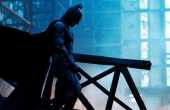GraceD
Contributing writer for The Artifice.
Junior Contributor II
- Sharp-Eyed Citizen
- ?
- Articles
1 - Featured
0 - Comments
4
- Ext. Comments
3 - Processed
3 - Revisions
3
- Topics
2 - Topics Taken
1 - Notes
2
- Topics Proc.
2 - Topics Rev.
1
- Points
165 - Rank
X - Score
80
Latest Articles
Latest Topics
Symbolism and Subtext: Making Meaning for ReadersThe best 'good stories' have a meaning/symbolism to them, most people agree; however, some stories out there impress that too hard, some stories don't 'require' you to search for any subtext, and some stories' meanings/symbolism you only realize later. How far should one go to impress meaning/symbolism, how much should be impressed, and can/should a story be…just a story?
|
Adapting as a Vlogger: Literary Web Series'The Lizzie Bennet Diaries spawned a wave of modern vlog adaptions – the creators made more, and others used the idea to adapt other stories: Nothing Much To Do, The Autobiography of Jane Eyre, Carmilla the Series. Why did this formatting style become 'the next big thing'?
|
Latest Comments
| The Rise of Antiheroes in Modern Superhero Films | |
I really think Mina is a character that needs to be taken directly from the text, devoid from other interpretations, in order to reimagine her in any new Dracula adaptation or whatnot. I think that the movies and such have almost bastardized the interesting format of the original story – the unique formatting, and how so many tropes of modern fantasy novels originate from that. Mina’s “The Chick” (the obligatory female member), Jonathan’s “The Normal Everyguy Who Gets Thrown Into Events Way Over His Head (meaning he should probably be played by Martin Freeman in any new adaptation), Van Helsing is “The Obligatory Guy Who Has A Clue On What’s Going On”. So I really wish that people would look more to that as an inspiration. | Why We Need Mina-Centric Dracula |
Believe it or not, the definition of ‘antihero’ is pretty darn different from what it was a few decades ago – and a lot of that has to do with comics. The classic hero is Superman – always does good, always knows what’s right, and saves the day (not that, when written well, is boring necessarily…) The classic ANTIhero is Peter Parker, Spider-Man – he doubts, he makes mistakes, and suffers from flaws. It’s just that this type of character (and Peter in comics specifically) was so popular people have begun lumping him/her into the automatic ‘hero’ category. | Anti-Heroes and the Appeal They Have in Comics |
Writing for children is writing for adults – as long as you don’t think children are stupid, and understand that they grow as they read, and have the potential to grow in understanding as time goes on. | Why Harry Potter Appeals to Adults as Well as Younger Audiences |

Yeah…that was a nod to That Series/Movie. You’d have to look it up to get the reference, but it’s a shout-out (in addition to being another point I’m trying to make)